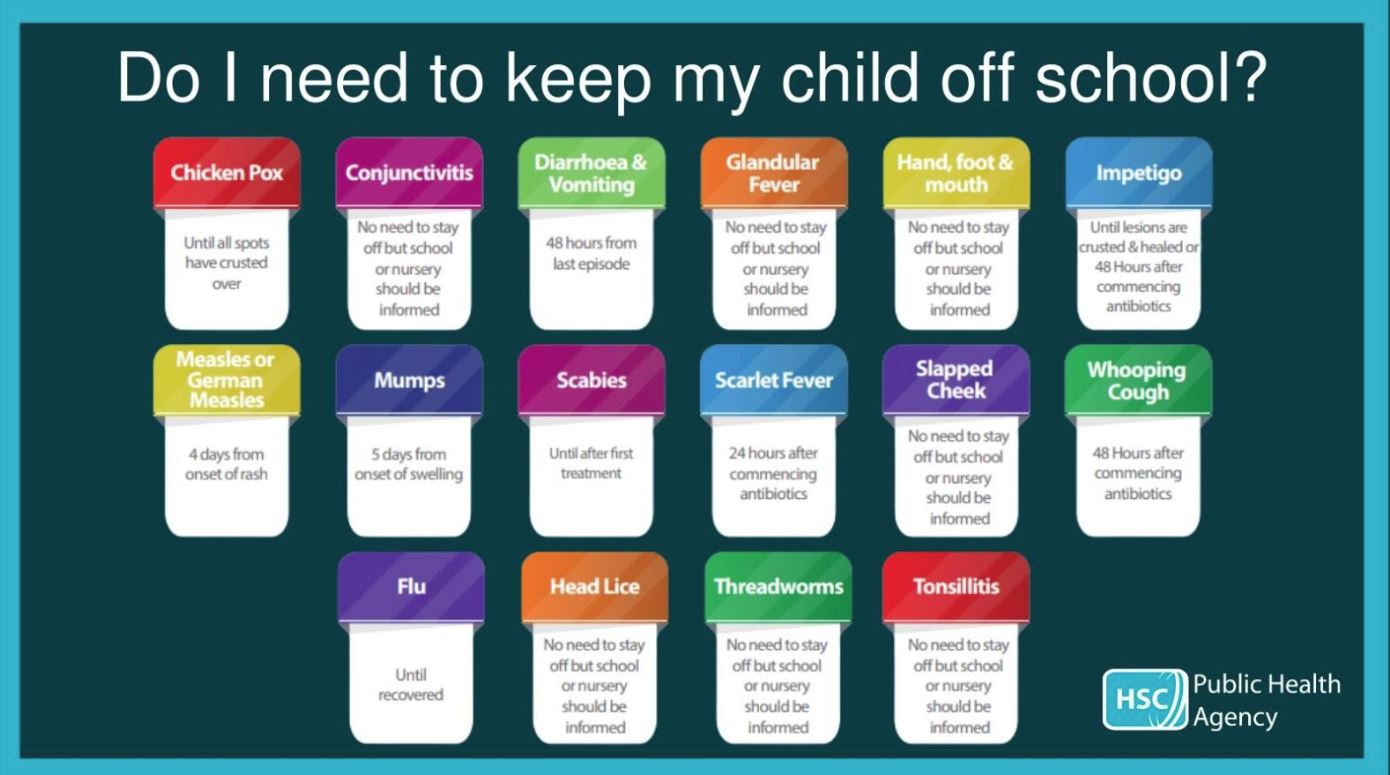Attendance
ABSENCE / LATE ARRIVAL
Regular attendance is essential for your child's progress at school. Research shows that missing school affects children's ability to make and keep friends, as well as falling behind with their work.
Children must only be absent from school if they are ill. School policy follows NHS guidance which states "Children with diarrhoea and/or vomiting should definitely be kept off school until at least 48 hours after their symptoms have gone." (www.nhs.uk).
If your child is ill or unable to attend school for any other reason, please contact the school office. This can be done via telephone, email or via our parents' app WEDUC. Please do this as early as possible on the same day, with an explanation. Please also ring school to advise if your child will be late for any reason.
Should your child need to be absent due to a medical appointment, please ask at the office for the appropriate form. Confirmation of the appointment from the doctor/hospital will also be required.
The school telephone number is 01509 212021. If a parent or carer does not provide a satisfactory reason for absence, it remains unauthorised.
The Education Welfare Officer (EWO) regularly meets with the Headteacher to monitor children's attendance. Our EWO is Naina Zavery. She can be contacted on 07947 994289.
Just to give you an indication of how punctuality affects your child's learning, should they be even 5 minutes late per day, this results in 25 minutes per week, which equates to 3 whole school days of learning missed every year! Now you can see why it's important for them to attend regularly and on time.
Attendance and Impact
All absence, at any stage, leads to gaps in your child’s learning. This, in turn, can:
- They fall behind in their work.
- Affect their motivation;
- Affect their enjoyment of learning;
- Leads to poor behaviour;
- Affect their desire to attend school regularly;
- Affect their confidence in school;
- It means they miss out on the social life of school and extra-curricular opportunities and experiences;
- It affects their ability to have or keep friendships.
Being late also reduces learning time:
- If your child is 5 minutes late every day, they will miss three days of learning each year;
- If your child is 15 minutes late every day, they will miss 2 weeks of learning each year.
| Weekly Attendance - No of Days | Attendance Percentage | Learning Missed |
|
5 |
100% |
None |
|
4.5 |
90% |
4 weeks per year |
|
4 |
80% |
½ a term per year, or 2 full years over the course of their school career |
|
3.5 |
70% |
More than ¼ of the school year |
|
Minutes Late - Daily |
||
|
5 |
|
3 days of learning per year |
|
15 |
|
2 weeks of learning per year |
Statistics:
- A child who is absent one day of school per week misses 80% of their education, which is equivalent to two years of their school life;
- 90% of young people with absence rates below 85% fail to achieve five or more good grades at GCSE and around one third achieve no GCSEs at all;
- Poor examination results limit young people’s options and poor attendance suggests to colleges and employers that these students are unreliable;
- Poor school attendance is also closely associated with crime. A quarter of school age offenders have truanted repeatedly;
- At least 1 million children take at least one half day off a year without permission;
7.5 million school days are missed each year through unauthorised absence.
END OF THE SCHOOL DAY
The school day finishes at 3:15pm. If you are unexpectedly delayed and are unable to collect, or will be late collecting your child from school, please contact the school office immediately. If you arrange for another adult to collect your child, you must let the school know the details of that person.
If contact has not been made within an hour of school ending, a telephone call will be made to social services, informing them of the situation. The following information will be given:
-
Child's name
-
Date of birth
-
Address
-
Parent/carer names and addresses
-
Gender
-
Ethnicity
-
Religion
-
Language spoken
-
Special dietary needs
-
SEND/behavioural difficulties/medical needs
-
Home/work and mobile telephone numbers
-
Any current or previous child protection concerns
-
Any previous incidents of not being collected from school
If there are any concerns about the welfare of the parent/carer, social services may ask the police to visit the home address.
In the event that the child is in immediate need of protection, the police, who have emergency protection powers, will be contacted.

